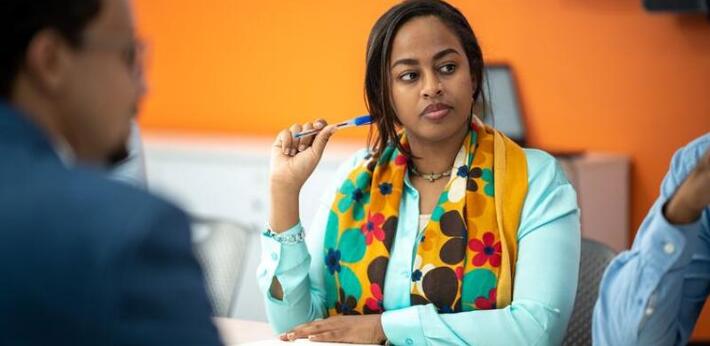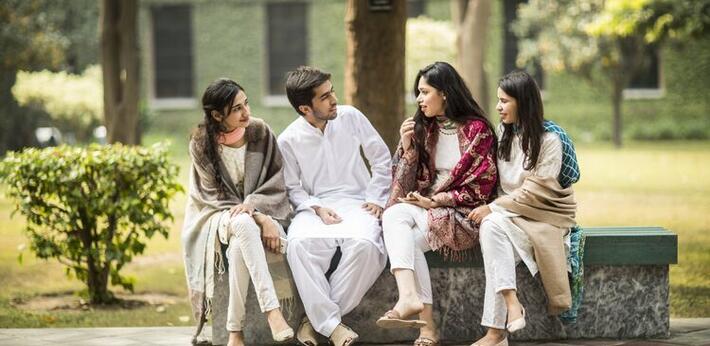You are here
Home ›31/01/2014
A landmark project: Knowledge Cities Pakistan
How can Pakistan combat its position at the bottom of the Innovation and Competiveness Indices? How can the UK or British Council contribute in the development and support of science and technology, humanities, education and the creative industries?
UK experts, British Council representatives and members of the Government of Pakistan participated in a roundtable on 23 January 2014 at the British Academy, London to discuss and develop Knowledge Cities in Pakistan through collaboration between the UK and Pakistan which would be further promoted at highly rated international universities in the UK and elsewhere.
MOUs were signed between the British Council Pakistan and the Governments of Khyber Pakhtunkhwa (KPK) and Punjab under which the British Council Pakistan aims to provide technical support in the design of the Knowledge Cities projects in KPK and Punjab. The ideal is to develop an ‘area of facilities’ in different cities of Pakistan based on the UK Technology Park model and Oxbridge-style Knowledge Cities.
The roundtable discussion was held to discuss how the UK and British Council can support Pakistan in promoting the Knowledge Cities project at highly rated international universities in the UK and elsewhere. Processes and resources were identified and aligned to the need for a structured mapping and scoping study to assess geo-physical, socio-economic and cultural aspects for planning such mega projects.
It was crucial for the British Council to consolidate its role and support in this project by forecasting the next stages of the process. A one-day policy dialogue in Pakistan on Knowledge Cities was planned, with participation from key UK stakeholders around May 2014 around the South Asia Policy Dialogue (SAPD) in Lahore. This would be supplemented by a mapping exercise of existing Higher Education partnerships in all three provinces. Finally on the agenda is a mission-wide meeting on Knowledge Cities, with DFID, UK Trade & Investment (UKTI) and the British Council.
The Roundtable participants were:
- David Caine, Director of International Office, University of West England
- Marilyn Leask, Professor of Education and Knowledge Management, University of Bedfordshire
- Sarah Younie, University of Bedfordshire
- Prof.Richard Dashwood, Warwick Manufacturing Group, International Digital Lab, University of Warwick, Coventry
- Professor Dame Joan Stringer, Senior Higher Education Advisor, British Council Edinburgh formerly VC of Edinburgh Napier University
- Piera Gerrard, Marketing Director, NCUK
- Sonia Saleem, CEO, SE Group of Companies , UK
- Dr. Jo Beall, Director Education and Society
- Peter Upton, Director, British Council Pakistan
- Maryam Rab, Director Research, Evaluation and Monitoring Unit, British Council Pakistan
- Liz Dempsey, Education Adviser, British Council, Manchester UK
- Asad Qaisar, Speaker of Provincial Assembly, Khyber Pakhtunkhwa
- Muhammad Atif ,Minister for Secondary Education, Khyber Pakhtunkhwa
- Shahram Khan, Minister for IT & Agriculture, Khyber Pakhtunkhwa
- Mushtaq Ghani, Minister for Higher Education, Khyber Pakhtunkhwa
- Khalid Khan, Additional Secretary, Khyber Pakhtunkhwa
- Rana Mashhood Ahmad Education Minister, Punjab
- Shahid Zaman, Additional Secretary, Punjab (Video Conference)
- Sheikh Hammad Amjad, Consultant Higher Education & Skills, British Council






